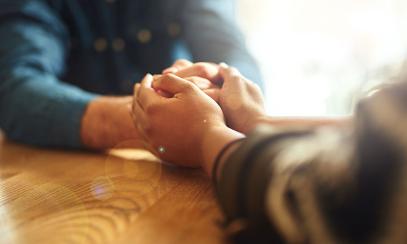Dear Fr. Joe: What is the difference between TV evangelists and the sacrament of anointing of the sick?
Dear Fr. Joe: The TV coverage of Hurricane Katrina showed a lot of people stealing from stores and other places. Was that OK?
Dear Fr. Joe: The TV coverage of Hurricane Katrina showed a lot of people stealing from stores and other places. Was that OK?
Wow – good question. Let’s start the answer by looking at the Scriptures; no better source, right? We read Exodus and find that the Seventh Commandment says, “You shall not steal.” Seems pretty straightforward, right? Well, maybe. One of the words we have to pay attention to in that commandment is “steal.” What does that mean exactly?
According to another great book, the Catechism of the Catholic Church, stealing is “unjustly taking or keeping the goods of one’s neighbor and wronging him in any way with respect to his goods.” The key question is this: Do we think the victims of the hurricane were unjust in taking things they needed to stay alive? Common sense, charity and the church all tell us the same thing – no.
Ownership of property is a gift – we are simply stewards of the things we own and we’re supposed to use our gift to benefit our brothers and sisters. Obviously, in a case such as the hurricane, it should be our desire to help those people who are in desperate need. If we don’t want to share, then we’ve got our priorities out of whack.
According to the catechism, theft is the “usurping of another’s property aganst the reasonable will of the owner. There is no theft if consent can be presumed or if refusal is contrary to reason and the universal destination of goods. This is the case in obvious and urgent necessity when the only way to provide for immediate, essential needs is to put at one’s disposal and use the property of others.” That’s pretty clear, right? Someone who is starving is not stealing if they take food.
On the other hand, stealing a TV is a different story – it’s not an immediate, essential need, especially when there’s no power!
Dear Fr. Joe: I’ve seen TV evangelists laying hands on people and “healing” them. Can you explain how this is different from our Anointing of the Sick?
Sometimes TV evangelists make it seem as if physical healing is guaranteed if the sick person just believes – I’m not always sure if they’re supposed to believe in Jesus or in the evangelist!
In any case, no person can guarantee physical healing to another person. Even the Apostles experienced illness and death. What Jesus did leave us is his comfort in time of sickness and frailty – a comfort we can experience in the sacrament of Anointing of the Sick.
When Jesus healed the sick during his earthly ministry, he was giving us all a sign that the Kingdom of God was near – that God had extended compassion to his people. That compassion is still with us today – and we are supposed to act like Jesus by comforting the sick and caring for the elderly.
Jesus used signs, like spittle and the laying on of hands, to heal those who came to him in faith. Those same signs and gestures are repeated in the Anointing of the Sick. The priest lays hands on the ill person, prays over them and anoints them with holy oil blessed by the bishop for this purpose. This rite comes right out of the Bible – in the early church, the apostles did the same thing. (cf James 5:14-15)
Amazing physical healings have been attributed to this sacrament, but whether or not there is a physical result, the major effect is one of spiritual healing and peace. The sacrament’s particular gift is to strengthen the faith and trust of the person who’s ill. It also unites the sick person to the sufferings of Jesus.
Anyone who is seriously ill, or in danger of death, or just frail from old age can receive the sacrament. And, unlike the old days when we called it Extreme Unction, this sacrament is not reserved for the deathbed anymore.
Anointing of the Sick is not magical mumbo-jumbo, but it is an awesome gift from God.
Enjoy another day in God’s presence.



